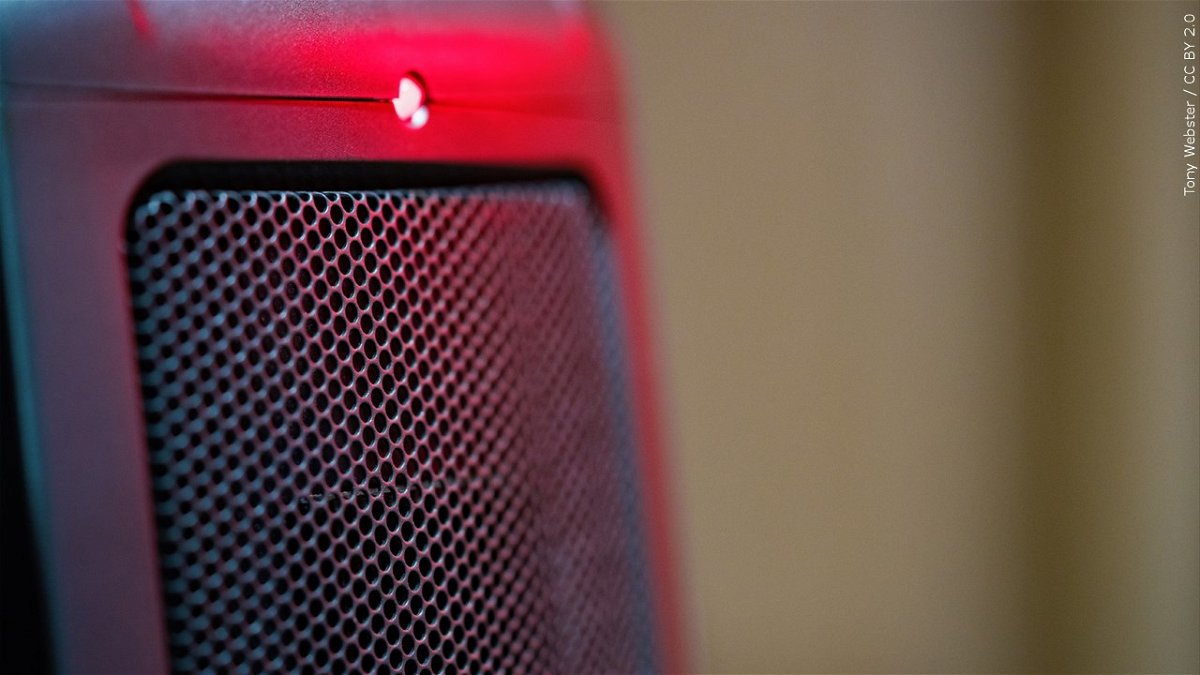Winter heating and electrical safety tips

POCATELLO, Idaho (KIFI) - We all like to snuggle up to a warm fire or space heater during the cold winter months, but heating equipment is one of the leading causes of home fire deaths.
The Idaho Falls Fire Department has recently responded to fires that were caused by heating and/or electrical-related issues and reminds people of the following safety information.
Smaller portable heaters should be operated according to the owner’s manual and shut off when leaving the area. Children, animals and anything that can burn such as blankets and curtains should be kept at least three feet away from the heat source. When using a space heater, it is recommended only one heater be plugged into a GFCI outlet at a time. The heaters should not be used with an extension cord.
"We've seen several instances where people are using space heaters as a permanent heat source," IFFD Fire Marshal Scott Grimmett said. “Space heaters should only be used as a temporary heat source and are unsafe for prolonged periods. Using them throughout the home as a permanent heat source in place of regular utilities may overload the circuit and is dangerous."
Project Help provides financial assistance to Idaho Falls residents who need help paying their utility bills.
"I’ve responded to at least two fatalities over the years from people using propane tanks or construction heaters containing combustible fuel inside their homes. Large heat sources such as these remove the oxygen out of the air and replaces it with carbon monoxide and should only be used in larger ventilated spaces with appropriate air flow; they should not be used indoors," Grimmett said
Heat tape is a flat plastic tape with an electrical element inside it that is oftentimes used under mobile homes or wrapped around other structures. This heat source, as well as others that are used to thaw pipes such as hair dryers and space heaters, should be checked frequently to ensure they’re working properly, replaced periodically, and used according to the owner’s manual.
Tips for Avoiding Frozen Waterlines
Circuit breakers are designed to limit the power to a level that a home’s wiring system can safely handle. There have been instances where individuals have overloaded circuits in an attempt to get more power to the outlet to run space heaters or other appliances. Overloading circuits can damage breakers and wiring which then causes arcing, sparks, and ultimately a fire.
"When using extension cords for their intended purpose, make sure there is an uninterrupted flow of electricity through the extension and appliance cords. Coiling cords or using cable ties causes resistance heating and pooling of the electricity and is unsafe," Grimmett said.
Fireplace safety includes making sure they are covered by a sturdy screen to prevent sparks from flying into the room. Ashes should always be cooled before placing them in a metal container that is kept outside and at a safe distance from the home. Chimneys should be inspected regularly to make sure they remain clean of creosote and are structurally intact.
According to the National Fire Prevention Association (NFPA), electrical fires were involved in an estimated annual average of 47,820 reported home structure fires in 2007–2011. These fires resulted in 455 civilian deaths and 1,518 civilian injuries, with $1.5 billion in direct property damage.
Here are some other important safety tips from the NFPA:
- Have all electrical work done by a qualified electrician.
- When you are buying or remodeling a home, have it inspected by a qualified inspector.
- Only use one heat-producing appliance (such as a coffee maker, toaster, space heater, etc.) plugged into a receptacle outlet at a time.
- Major appliances (refrigerators, dryers, washers, stoves, air conditioners, etc.) should be plugged directly into a wall receptacle outlet. Extension cords and plug strips should not be used.
- Arc fault circuit interrupters (AFCIs) shut off electricity when a dangerous condition occurs. Consider having them installed in your home. Use a qualified electrician.
- Use ground fault circuit interrupters (GFCIs) to reduce the risk of shock. GFCIs shut off an electrical circuit when it becomes a shock hazard. They should be installed inside the home in bathrooms, kitchens, garages and basements. All outdoor receptacles should be GFCI protected.
- Test AFCIs and GFCIs once a month to make sure they are working properly.
- Check electrical cords to make sure they are not running across doorways or under carpets. Extension cords are intended for temporary use. Have a qualified electrician add more receptacle outlets so you don’t have to use extension cords.
- Use light bulbs that match the recommended wattage on the lamp or fixture. There should be a sticker that indicates the maximum wattage light bulb to use.





